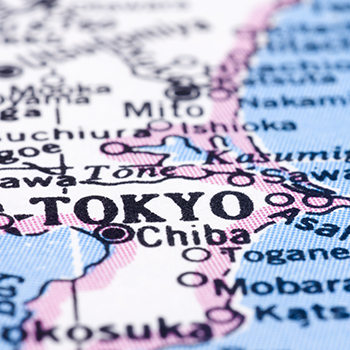You make it through the turnstiles of the Stade de France.
“We’re seated this way,” you say to your wife.
She grabs your hand, smiles, and then the two of you begin walking in the direction that you pointed.
You and your wife met on a football [soccer] pitch in high school. Over the years, she has told you how amazing it would be to experience a live match.
So, there was no better way for you to surprise her for your 25th anniversary than to take her to an international game.
Sarah’s family is French, and she grew up a Paris St Germain fan. For today’s matchup, Germain faces their archrivals, Olympique Marseille.
You scored huge brownie points with this surprise.
“I’m a little thirsty,” she says. “Do you want anything?” The two of you purchase a couple of sodas and begin walking.
While you are walking, you notice an influx of people entering the grounds. You brush it off and continue on your way.
However, once the match begins, the amount of people near the pitch increases. As a director of operations, you know this is not normal.
“This isn’t safe,” you remark. You can tell it is overcrowded. It gets worse. You grab Sarah’s hand and guide her out of the stadium quickly.
As you begin to make your way out of the Stade de France, both of you are startled by the sound of firecrackers and a roaring crowd. The crackers appear to be coming from the pitch.
“It’s time to go,” you tell Sarah. Nervous, the two of you rush to safety along with several other spectators making an escape.
Have you ever had an operational breakdown like this at your property? How would this affect your property if you were set to host a major event in a few short weeks at your property?
France is faced with this challenge. They must remedy their security problems before the pressure is turned up for UEFA Euro 2016.
Will they be prepared? We believe that we can help.
France Pledges to Repair Stadium Security Before UEFA Euro 2016
In a recent article by John Irish of Reuters, “Security failures exposed at France's soccer cup final over the weekend will be sorted out before the start of Euro 2016 contest in three weeks' time, the government said on Monday.
The month-long tournament opens across France on June 10 with a state of emergency still in force after Islamist militant attacks last November that killed 130 people in Paris and targeted multiple sites across the capital, including the Stade de France.”
Irish’s article continues that, “Saturday's match between arch-rivals Paris St Germain and Olympique Marseille at the Stade de France had been deemed a high-risk event and a first test for organizers of security measures required for the Euros.
Fans threw firecrackers and flares inside and outside the stadium and banned objects were brought into the grounds despite close searching, security officials said. There was also serious overcrowding.”
Philippe Galli, the prefect for the Seine-Saint-Denis region who is responsible for security at Stade de France, made a statement that caught our attention.
- “We will have to correct what didn’t work.”
As you already know – this is not Proactive Operations. Galli’s statement exemplifies the inefficiencies of using reactive measures to handle security issues.
A temporary remedy for resolving these stadium security issues is to add more personnel over the 110 sites. This event expands over the course of a month.
Many potential hazards can surface. France needs a stable operation – a fortified one.
Yes, the article mentions the use of high-tech equipment to monitor the crowds. However, this has minimal effectiveness if a reactive operation operates during the month-long competition.
Here is our perspective: the article has no mention of any of the aspects of Proactive Operations except for the use of technology, which is only a small aspect of the technology that needs to be employed to be successful during Euro 2016.
Proactive Operations Is the Cure for Reactive Security Measures
We get it; France is using high-tech monitoring systems to track crowds for the tournament next week.
However, a large part of their plan involves increased security presence. Added security presence also inherently adds to the confusion because now they have more officers to “communicate” with during the event.
This could become worse than the original issue identified during France’s soccer cup final.
Currently, France’s plan includes various aspects of what is needed.
- High-tech equipment
- Security professionals
- Fan zones to help control crowds
France is on the right track. But, to ensure this event is carried out with first-class professionalism, they need to employ and optimize the following.
- Strategy
- Infrastructure
- Technology
Strategy, Infrastructure, and Technology move your operation to a ‘proactive’ one rather than a ‘reactive’ one. This is the issue that France is challenged with overcoming.
Keep reading; here is how France can do it. Here is how you can do it. (If you need an in-depth understanding, you can read this article here.)
Start With Strategy
First, you need to identify your operation’s weaknesses. The best way to do that is to institute a strategy that covers all critical areas.
We have created the ACDA Principle™, which allows you to address every important pillar of your organization. Then, you ask the right questions to fill in the gaps.
The Principle introduces four key areas that builds a foundation that you must have for a sound infrastructure.
- Awareness
- Communication
- Documentation
- Analysis
Ask questions and scrutinize your operation around these four parts to the Principle.
Here are some questions you might start contemplating:
- What currently occurs in your operation?
- Does your staff always/ever know what’s occurring?
- Is your staff proactive in any way?
- How does your resource allocation stack up?
- Are you able to efficiently manage departmental teams?
- How does your staff communicate (i.e. radios)?
- Does your team efficiently execute operational tasks?
- How far back can you quickly retrieve incident details?
- Is liability defense something your operation struggles with regularly?
- If a guest loses something, how quickly can you find it and return it?
- Can you track accountability?
- Do you know whether your staff is executing the correct protocols-to-handle?
- What tools do you use to improve your operation’s performance?
Following these questions, you will understand how much work is ahead of you. It is time for you to move on to your Infrastructure.
Infrastructure Prevents Your 'System From Collapsing While Under Pressure'
Part of being proactive means building a robust infrastructure. You need one that is reliable. The integrity of your infrastructure affects the longevity of your operation. It holds everything together.
Consider France’s circumstances. They have a large number of personnel and locations to oversee. To be effective, they have to trust the ‘foundation’ that keeps these departments and operational units performing in unison.
Your infrastructure is what enables a streamlined operation. It ensures the proper flow of information, whether that is communication or data itself.
You need to organize your departments. You also need to limit the amount of noise that interferes with operations. You can do this by forming command centers, each with a particular purpose.
Since France is running a large soccer tournament, we use a stadium example.
For each stadium location, employ a front-of-house command center, which includes personnel from (for example) Police, Fire Rescue, and Security.
Many operations often include guest services and parking operations in this type of command center.
It is important to understand that you must have a designated individual for dispatching information and communicating with your back-of-house command center. This command center will include departments such as maintenance, IT, and housekeeping.
Two distinct command centers at each location ensure effective communication. Information is directed to the correct operational unit. Nothing gets missed.
Do you see how everything works together?
- Strategy lets you identify weaknesses and operational gaps
- Then, you build an infrastructure to streamline and coordinate the flow of information
- Next implement the technology that helps you maximize the capabilities of your strategy and infrastructure
Technology Takes You From Operational to Proactive
It is time to turn it up a notch. You have the strategy and infrastructure handled.
Can you imagine what France will already be capable of at this point? Better yet, can you imagine how much more efficient and safer your property will be?
It’s time to maximize the performance of your operation.
Progressive technology, such as web-based text communication, incident management systems, and mobile applications introduce a new wave of efficiency to operations.
Whether someone needs directions or a guest spotted a fight, text communication lets your staff communicate with your guests. Everyone quickly gets to the point of the problem, issues and incidents are handled and mitigated, and nothing slips through the cracks.
An incident management system ensures that anything occurring at your property is effectively managed. From documenting an incident to communicating it to your supervisors and critical departments, you maximize your response times while keeping all parties in the loop.
15,000 security staff requires many people on the same page. Arming them with incident management mobile applications guarantees real-time communication for your entire operation. Problems are reported and handled faster than before when you were only using radios – or nothing at all.
Do you see how deploying this technology increases your awareness, enhances your communication, and ensures accurate and complete documentation?
Now, imagine the analysis you can achieve to improve.
Take the real-time data you gain from becoming a proactive operation and turn it into the ‘solution’ to all future events at your property.
No longer worrying about “correcting what didn’t work.” Focus on optimizing all the actions that worked well.
This is how you remain successful.
Over to You
You might not be in charge of UEFA’s Euro 2016 like France. However, we recommend that you employ Proactive Operations for your operation now. Strategy, Infrastructure, and Technology sets you up for success, not failing.
How? Because you are proactive, not reactive. How’s that for success?




